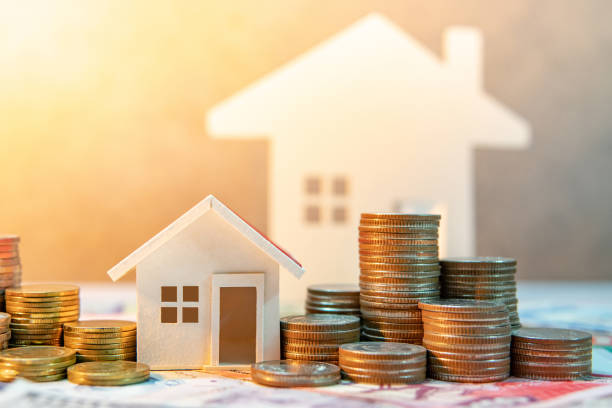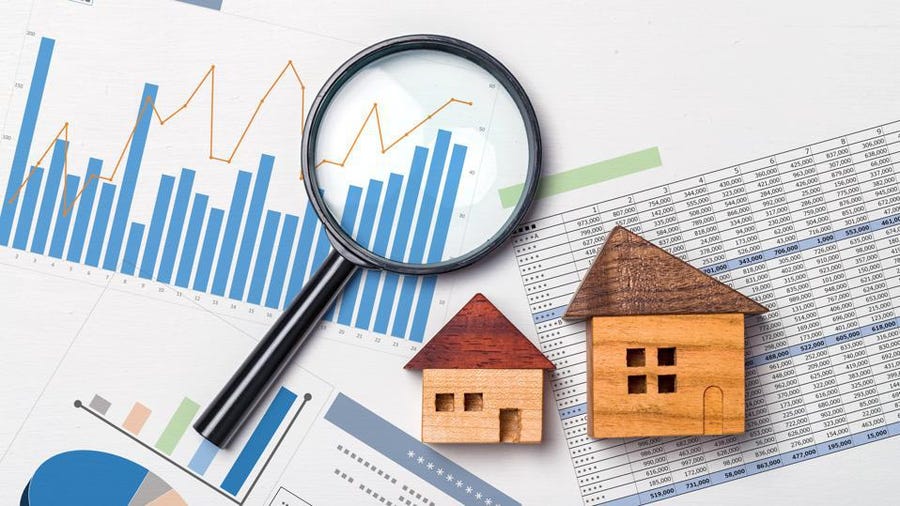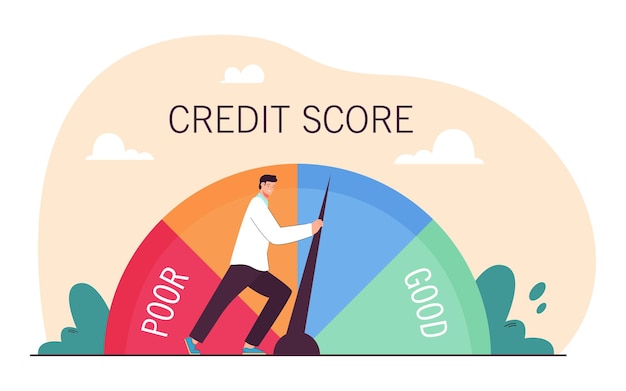Investment Property Mortgage Rates Vs. Primary Residence
Converting Primary Residence to Rental Property Mortgage
September 29, 2022
A rental property is purchased through a different process than a primary dwelling. As a result, mortgage rates for investment properties usually are higher than rates for ordinary home purchases, and the criteria for obtaining an investment property loan are frequently stricter.
Numerous areas of the national economy are affected by the volatility of interest rates. Most real estate investors are familiar with how interest rates can impact the cost of borrowing. Since lower interest rates make borrowing money more affordable, they encourage home purchases and loan activity on investment properties. Additionally, it may alter the profitability of an investment property or lower your primary residence’s monthly mortgage payment.
But interest rates for homes and investment properties operate differently. Let’s examine the different types of mortgages for rental properties in more detail, as well as the variables that influence borrowing costs for both types of property ownership.
Types of Rental Property Mortgages
You have many of the same financing choices available when buying an investment property as when buying a permanent residence.
Conventional loans
For an investment property, you can use a typical conventional loan, commonly referred to as a conforming loan. Again, 15% is the minimum down payment, although 20% is advised to avoid mortgage insurance.
Government-backed loans
If you choose a multi-unit property (2-4 units) and reside in one of the units, you may purchase an investment property with an FHA or VA loan.
For these mortgages, the required down payment is as low as 3.5% for FHA loans and 0% for VA loans (when you meet eligible military service requirements).
Portfolio loans
Portfolio lenders are free to create their standards for investment property loans. With these programs, you might be able to finance more homes or put down less money, but you should be prepared for higher interest rates.
Hard money loans
These short-term loans from hard money lenders come with high-interest rates and exorbitant fees. Still, they may be helpful if you’ve located an excellent investment opportunity and need the money immediately.
One of the few justifications for considering a hard money loan is the speed of borrowing. A different loan type typically offers greater financing possibilities for real estate investors.
Commercial loans
Commercial and residential loans are also available for people looking to purchase properties with more than four units or borrow money only against the property’s profits. However, they might be costly and difficult to set up.
You’ll probably need to create a single asset bankruptcy remote entity to stop property owners from using the rental income to pay the mortgage on their own.
Interest rates on Primary Residences
You sleep at your primary abode at night. It might be a lavish single-family home in the Santa Monica mountain foothills, a one-bedroom apartment in Tulsa, or a midtown condo in Houston. When taking out a mortgage, you’ll typically obtain the best interest rate on a primary house because it’s the location you call home. In addition, because homeowners are less likely to stop making loans if they get into financial trouble, lenders perceive loans for primary residences as less risky than other types of loans.
The place where you spend most of your nights must be your primary residence. Additionally, it must match your driver’s license address or the one you use to file your taxes.
Since interest rates for 30-year conventional loans hit an all-time low of 2.65 percent in early 2021, last year was a good time to borrow for main residences. However, rates have been gradually rising, and as of mid-February 2022, the interest rates on 30-year conventional loans were almost 4%. ¹ In contrast, the interest rates on 15-year loans were barely over 3%.

Interest Rates on Investment Properties
According to a conservative estimate, borrowers should anticipate paying between 5 and 1 percent higher interest rates for investment or rental property loans. Interest rates are heavily influenced by the borrower’s financial and credit position. In general, you’ll pay more in interest for investment properties than you would for a home loan because lenders are assuming a little higher level of risk.
According to this line of reasoning, investment property loans are riskier for lenders than primary residence loans since investors are more likely to default on loan payments than homeowners are. For that increased risk, they charge higher interest rates, and to qualify, borrowers must fulfill stringent requirements, including making a greater minimum down payment.
Factors That Affect Interest Rates on Primary Residences and Investment Properties
Both types of lending are based on the following criteria:
- Credit score
- Cash on hand
- Debt-to-income ratio (your monthly payments versus gross monthly income)
- Loan-to-value ratio (the amount financed versus the value of the financed property)
Since the subprime mortgage market collapsed, which caused the Great Recession, applicants must show strong results in each category to be approved for a mortgage. In addition, the standards are even more stringent for loans for investment properties.
Are Investment property rates above Standard rates?
An investment property can provide cash flow for you immediately if you purchase it at the right price and finance it adequately.
However, it is more difficult to obtain an extremely low mortgage rate for a rental or investment home than for a personal dwelling. This is because lenders charge extra for “non-owner-occupied” transactions, which refer to real estate that is not intended for your use.
Despite increased interest rates, buying real estate is frequently a wise choice in the long run. So here is the amount you should budget to pay today to finance that upcoming cash flow.
How much higher are mortgage rates for investment properties?
Rental and investment properties will always have higher mortgage interest rates than your main house. By how much more? The sort of investment property, your creditworthiness, and the amount of your down payment all play a role in answer to that query.
However, as a general guideline, you may anticipate your investment property’s interest rate to be between 0.50% and 0.75% higher than the rate on your home mortgage. This is because the rates on investment loans should, on average, be 0.50% to 0.75% higher than the rates on your regular mortgage.
The rate on an investment property would be around 6.5% to 6.75% (6.572% – 6.822% APR), for instance, if the live 30-year fixed rate as of September 25, 2022, is 6% (6.072% APR). Because they view mortgages for rental and investment properties as a riskier lending product, lenders levy this additional fee. If things are bad, mortgage borrowers are more likely to default on rental homes than on their primary property. Therefore, these mortgage loans are more prone to fail during difficult economic times.
Lenders impose stricter qualifying requirements for borrowers and demand a higher interest rate as insurance against the added risk associated with financing investment properties. Because of this, it’s even more crucial to compare shops and ensure you’re getting a reasonable mortgage rate on your investment property before you buy.

The math behind Rental and Investment Property Loan rates
The interest rate that your mortgage lender charges isn’t entirely under their control. Rate adjustments by property lenders are common to comply with Freddie Mac and Fannie Mae’s requirements.
Most mortgages today are governed by Fannie and Freddie; whose fees directly impact the interest rate you ultimately pay. Fannie Mae and Freddie Mac impose greater fees on transactions involving the purchase or refinancing of investment homes due to the higher risk involved. As a result, your interest rate will rise due to their costs.
For instance, a charge equivalent to 3.375% of the loan amount would be necessary for an investment property loan with a 20% down payment. This is equivalent to borrowing $100,000 at a rate of $3,375. The borrower pays a higher interest rate than additional money for closing fees. How do these fees affect your final pricing, then?
In this instance, an additional 0.5% to 0.75% added to the rate can cover the 3.375% in investment property loan fees. Please note that this is for a single-family residence. For example, purchasing a duplex could result in additional costs of 1.0% or a rate increase of 0.125% to 0.250%.
To get the best rates, experts say you should put down at least 25%. A loan-to-value ratio of 75% or less is desirable for investment purchases.
What are current investment property mortgage rates?
Rates for investment properties are typically 0.5–0.75% higher than average rates. Therefore, buyers should anticipate loan rates to start at 6.5% to 6.75% (6.572 – 6.822% APR) for a single-unit investment property at today’s average rate of 6% (6.072% APR) for a primary house.
A credit score of 740 and a 30% down payment are required for the typical rates of today’s borrowers, who fit the criteria for prime borrowers. So your interest rate will probably be greater than what you see advertised if you have poor credit or a small down payment.
Typically, a 20% down payment is required, but a 25% down payment is preferred. Because of this, average rates should only be used as a comparison.
You should check quotations from several lenders to get the best offer because your investment property rate will vary. You can check your quotation here at Aurum and Sharpe to get the best offer available.
What affects my investment property interest rate?
Various factors influence your investment property mortgage rate in addition to those set forth by Freddie Mac and Fannie Mae. In addition, further considerations for each element affect mortgage rates.
That includes:
- Your credit score
- Your debt-to-income ratio (DTI)
- Your cash reserves
- Loan-to-value ratio (LTV) on the investment property
When you purchase an investment or rental property, your finances, including your credit record and tax returns, will be scrutinized much more closely than when you purchase a residence.
To be eligible for an investment mortgage and receive a reasonable rate, you’ll need a more robust financial background. The majority of people who buy rental properties finance them with traditional loans. The down payment requirements for purchasing a rental property are listed below.
A 15% to 25% down payment is a sizable sum, especially compared to the 3% down payment required for a conventional mortgage on a principal residence or the 0% down payment required for homeowners eligible for the USDA or VA mortgage loan programs.
Increased down payment requirements are one more risk management measure lenders use when approving loans for real estate investing.

Investment Property credit score Requirements
Lenders typically require a higher credit score for borrowers financing investment properties than those purchasing a primary dwelling.
For instance, Fannie Mae borrowers who put down at least 25% can be approved for a primary residence with a 620 FICO score. For a rental, the required credit score rises to 640.
Try an FHA loan if your credit isn’t great; its underwriting is significantly more liberal.
FHA loans are accessible for properties with up to four units, and the minimum credit score is 580. The problem? The building is still considered your primary residence because you must reside in one of the units.
Other guidelines for rental and investment property loans
Underwriters will examine your qualifications as a prospective landlord when you apply to buy a rental property. You’ll struggle more if you’ve never handled any real estate or owned a home.
By employing a property manager, some lenders permit novice real estate investors to get around this. However, consult your loan officer before assuming anything because the official guidelines are unclear.
When using conforming (Fannie Mae or Freddie Mac) financing, there are restrictions on the number of mortgaged properties you can own. Additionally, you will need to save up money in the form of a number of months’ worth of mortgage payments to cover the months that your property will be vacant.
How to get a lower mortgage rate for your investment property
High-interest rates on investment real estate are difficult to avoid. However, you can take steps to guarantee you get the greatest value.
1. Make a bigger down payment
Making a larger down payment is the most reliable approach to securing a lower interest rate on your investment property. If you can put at least 20% down, a large portion of the increased cost disappears. To raise the down payment on your rental, it can be worthwhile to borrow money against the equity in your current house. Additionally, you can purchase a less expensive home or a foreclosed property at a discount. Finally, if this is a particularly strong investment, you might consider borrowing from your 401(k) (k).
2. Improve your credit score
Most people buying rental properties will use a traditional loan to pay for them (more on investment property loan types below).
These investment loan rates are quite sensitive to credit scores. For example, the customer with a 650 score is contrasted with the buyer with a 720 score in the example below.
Credit score
Home price
Down payment
Rate
P&I payment
Savings
650
$250,000
25%
5.75%
$1,095
–
720
$250,000
25%
5.125%
$1,020
$75/mo
The home buyer with a superior credit score may afford to give tenants a better rental price because of the reduced monthly payments.
The decreased monthly payment would allow this real estate investor to generate greater cash flow.
3. Shop around
According to studies, home buyers who completed several loan applications decreased their likelihood of receiving unfairly high mortgage rates by about 5%. While purchasers who did just one search for a home sometimes had to pay higher mortgage rates than other borrowers.
Additionally, customers who reviewed at least five bids had cheaper mortgage rates than those who just compared three. Before picking a lender to finance your investment property, we advise evaluating rates from at least 3-5 institutions.
What are today’s investment property rates?
Because they are considered a greater risk, mortgage rates for investment properties are higher than those for primary residences.
Nevertheless, rental properties are typically excellent investments over the long term, so a slightly higher rate may not be significant, given the returns you’ll receive on the asset.
Each application is unique. Obtaining quotations from several lenders and forcing them into the competition is the best way to determine your current investment property mortgage rate. Since rates are constantly changing, getting in touch with lenders online is the quickest way to obtain a fistful of rates to compare.
The Bottom Line
Interest rates for primary residences and investment properties are influenced by additional factors that are not under the control of investors or homeowners. These include creating new jobs, the condition of the domestic and international economy, and inflation. Interest rates also depend on monetary policy at the federal level.
As the Federal Reserve works to rein in spiraling inflation, consumers may experience drastic interest rate increases in 2022. Not when rates will increase but by how much is subject to consensus. Remember that rising expenses to finance personal residences and investment properties are the leading causes of higher interest rates. Consumers with fixed-rate loans won’t be impacted, but those with variable-rate loans can suffer if their interest rates change to less advantageous conditions.
Mortgage Rates
DSCR Mortgage: 7.375%
Commercial Mortgage: 7.5%
Single family, Condo Investment Property: 7.375%
Portfolio of Residential Homes: 7.5%
Calculate Your Monthly Payment
Mortgage Information
Monthly Payment
Principal and Interest: $0
Total Monthly Payment: $0


